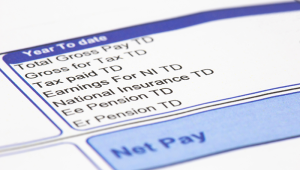Ministers are set to change the public sector policy after seven years of austerity. Earnings for public employees were frozen for two years from 2010 and subsequently subject to an increase cap of 1%.
The BBC has reported that the move is likely to be extended to other state employees in due course.
It comes as unions meet in Brighton for the annual Trades Union Congress.
Responding to the reports, TUC general secretary Frances O’Grady said: “The ice is beginning to crack. The government has clearly lost the argument on public sector pay.
“Police and prison officers are long overdue a pay rise, but so too are the nurses, firefighters and all public servants working across the country.”
She urged ministers not to cherry-pick some public sector workers for a pay rise over others stating that all had earned a pay rise.
O’Grady added: “We need to hear more about how this will be funded. The costs for this pay rise must not fall upon our already-stretched public services.”
According to analysis from the TUC, if current policy continued up to 2020, based on 2016 prices, nurses would see a real-terms cut in wages of £2,656, social workers would be £3,533 worse off and teachers would lose £3,064.
But the Taxpayers’ Alliance today published research suggesting public sector pay conditions were more than 10% better than those in the private sector.
The report states: “It is important to recognise that the salaries and pensions of those in taxpayer-funded positions are on average more generous than the private sector. Those in the public sector also work shorter hours and take more sick leave than their private sector counterparts.”
TPA chief executive John O'Connell said: “Those who manage tough jobs well deserve good pay, but it's vital that any debate about the public sector pay cap takes into account other things like pensions.
“The public finances are still in the red, so it's not right to borrow even more money and force our children and grandchildren to pay for things we want today.”
The TPA has called for public sector pay to be set locally rather than nationally and urged the government to cut taxes “in all sectors” to allow people to keep more of their earnings.
But the GMB union branded the TPA “economically illiterate”.
It pointed to the Treasury's analysis which shows that there is no difference between private and public sector pay once average salary rates are adjusted for skill levels and role responsibilities.
Rehana Azam, GMB national secretary for public services, said: “Public sector workers are taxpayers too, and they are working dangerous levels of unpaid overtime to hold vital public services together.
“Ministers must commit to genuine wage increases for all groups of public servants this week.”
Scotland last week confirmed it would end the 1% pay cap next year.



















